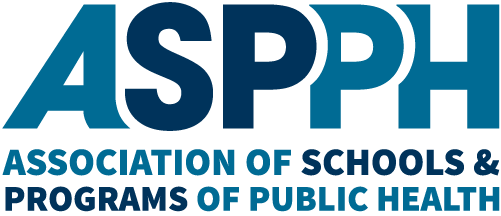Earn Your Bachelor of Science in Public Health Online
The Degree for the Career You Really Want
Take the next step toward your career goals without having to move or change employers. Kent State University's CEPH-accredited, 100% online Bachelor of Science in Public Health (BSPH) program helps you develop the skills to advance while you keep up with your job, family and other commitments. Kent State designed the flexible BSPH program to fit your needs, with credit for training you already have, offering asynchronous courses that let you study on your schedule and your choice of three Public Health concentrations for your degree.
Program Snapshot
- 120 credits, 100% online
- Time to Completion: ~2-4 years, based on academic credits and licensure1
- Approximate cost per credit: $559 in state, $569 out of state
- Three annual start dates: Fall, spring and summer
Build the Career You Want
Take your career to a higher level with Kent State’s affordable, flexible undergraduate and graduate public health programs. Our 100% online programs allow you to keep up with your current responsibilities while you study. Find out how these programs can help you create the career and positive public health impact you want to have.
Download our guide to learn more about:
- Career Opportunities
- Customizing Your Degree
- The Student Experience
- Admission Requirements
- Tuition and Financial Aid
Download Program Brochure
This will only take a moment.
Reach Your Goals Faster with Kent State
Earn your degree faster by getting credit for the work you've already done. If you are pursuing the BSPH with an Allied Health concentration, you can earn up to 12 credits for your accepted license or certification. See the list of accepted Ohio licenses and certifications. The College of Public Health will also work with you to validate out-of-state licenses. Your associate degree will also allow you to complete the BSPH in as little as two years, for any concentration.


What can I expect from Kent State's online Bachelor of Science in Public Health?
Excellence, flexibility and exceptional value.
The Kent State University College of Public Health offers an online Bachelor of Science in Public Health program with three different specializations in a convenient, focused format that gives you the flexibility to keep up with your work and family responsibilities while you study.
The Council on Education for Public Health (CEPH) and the Association of Schools and Programs of Public Health (ASPPH) accredit the online Bachelor of Science in Public Health program. These accreditations ensure that the program meets the highest educational standards while working to improve public health through education, research and policy.
With tuition rates that protect your bottom line, Kent State’s online BSPH program is the financially responsible, quality choice to help you move up.
The Military Friendly Gold Designation recognizes Kent State University's outstanding service to the extended military community and all its students.

You Have Kent State’s Full Support
Continuing your education as a working professional is a challenge, especially if you also have family commitments. Kent State’s admissions outreach advisors understand the time pressures you face and are here to help you succeed as you balance school with work and life.
Program Overview: Earning Your Public Health Degree Online
Kent State’s online Bachelor of Science in Public Health program offers three degree concentrations. You’ll choose your concentration when you enroll in the program and can change it during your studies, if you prefer.
Allied Health
If your professional passion for helping people has led you to a licensed healthcare technical field like those listed below, Kent State University's online Bachelor of Science in Public Health with an Allied Health concentration can help you do more good while accelerating your career growth.
Kent State recognizes your commitment and the need for licensure in these fields by offering you up to 12 credit hours of upper-division credit if you hold or are actively pursuing state licensure. This shortens your time to degree completion and lowers your tuition cost. If you don't hold a state license, your coursework will help you prepare for it with 12 hours of classes in allied health-specific areas.
The BSPH with an Allied Health concentration is the perfect way to build on your associate's degree and prepare for managerial or advanced technical roles, for graduate or nursing education and additional advancement opportunities.

The Allied Health concentration is ideal if your professional interests include:
- Respiratory care
- Radiologic technology
- Occupational therapy
- Physical therapy
- Accelerated nursing (may require additional coursework)*
Health Services Administration
The Health Services Administration concentration prepares you for graduate work in health policy and management. You’ll analyze national and local public health infrastructure, evaluate the effectiveness and efficiency of healthcare delivery, and explore the legal and ethical issues of healthcare administration. Pair this concentration with a minor for the most comprehensive learning experience.
To advance your career sooner, Kent State offers the accelerated MPH option, through which you can apply up to 9 credits to your bachelor’s and master’s degree programs.

Choose the Health Services Administration concentration if you aim for a career as a:
- Finance manager
- Compliance officer
- Patient navigator
- Insurance specialist
- Healthcare manager in other areas
Clinical Trials Research
In the Clinical Trials Research concentration, you'll learn to design and answer research questions, collect and manage data, and communicate research findings to scientific and lay audiences. Your coursework will include the management of research studies, government regulations for clinical trials, the scientific literature related to drugs, medical devices and other new therapies, and an internship in a clinical research setting.

The Clinical Trials Research concentration is the right choice if you want to manage clinical research studies in:
- Hospitals
- Contract research organizations
- Medical schools
- Insurance companies
- Pharmaceutical companies
Choose Your Future
In each concentration, the online Bachelor of Science in Public Health program instills a thorough understanding of:
- The history and philosophy of public health
- The core values, concepts and functions of public health around the world
- The basic concepts, methods and tools of public health data collection, use and analysis
- The importance of evidence-based approaches in public health practice
- The concepts of population health, including the major health-related needs and concerns of populations
- The underlying science of human health and disease, and using it to promote health across the lifespan
- The diverse factors that affect human health and contribute to health disparities
- The fundamentals of project implementation, including planning, assessment and evaluation
- The fundamental characteristics and organizational structures of the U.S. health system and a comparison to other systems
- The legal, ethical, economic and regulatory dimensions of healthcare and public health policy
- The public health roles and responsibilities of different government entities
- The basic concepts of public health-specific communication
Launch your public health career. Build your earning power.
With a bachelor’s degree in public health, you'll qualify for diverse roles with strong earning potential as you advance in your career:


Study Abroad: Connect Classroom Learning to the Global Community
Take advantage of your Kent State opportunity to explore other cultures and diverse areas of the world. In your choice of a short-term or year-long experience, you can fulfill credits toward graduation in one of more than 200 programs in 60 countries, including with the Florence Health Institute in Florence, Italy.
For more information on study abroad, talk with an admissions outreach advisor.
Courses
The 120-credit-hour online BSPH degree is comprised of:
- University Requirements
- Destination Kent State: First-Year Experience
Satisfactory completion is required of all undergraduates except those who are 21 years of age at the time of application or who have 25 or more credit hours, excluding post-secondary and dual enrollment programs. - 36 credit hours from the Kent Core (General Education Requirements) This is the foundation of the university's mission to prepare students to live in today's complex, global society.
- Diversity Course Requirement
All students must satisfy this requirement, which consists of one course addressing domestic (U.S.) issues and one course addressing global issues. - Experiential Learning Requirement
This provides students with the opportunity to initiate lifelong learning through the development and application of academic knowledge and skills in new or different settings. - Writing-Intensive Course Requirement
This assists undergraduates in becoming effective writers within their major discipline.
- Destination Kent State: First-Year Experience
Courses for the Public Health Major
Courses for the Allied Health Concentration
Courses for the Clinical Trials Research Concentration
Questions and Answers
Have questions? We have answers.
Choosing the right online program comes with lots of questions, and our admissions outreach advisors, Taylor and Lilly, are here to help you sort through them all. Connect with this friendly, knowledgeable team for personalized guidance. They’ll make sure you have everything you need to feel confident about your next steps at Kent State.

Admissions and Application Deadlines

- In most cases, full-time students with an associate degree graduate in two years or less. Full-time students with a high school diploma or GED graduate in four years.
- Retrieved on August 28, 2025, from carnegieclassifications.acenet.edu/institution/kent-state-university-at-kent/
- Retrieved on August 28, 2025, from payscale.com/research/US/Degree=Bachelor_of_Science_(BS_%2F_BSc)%2C_Public_Health_(PH)/Salary
- Retrieved on August 28, 2025, from payscale.com/research/US/Degree=Bachelor_of_Science_(BS_%2F_BSc)%2C_Public_Health_(PH)/Salary/Page-3
- Retrieved on August 28, 2025, from payscale.com/research/US/Degree=Bachelor_of_Science_(BS_%2F_BSc)%2C_Public_Health_(PH)/Salary/Page-6




